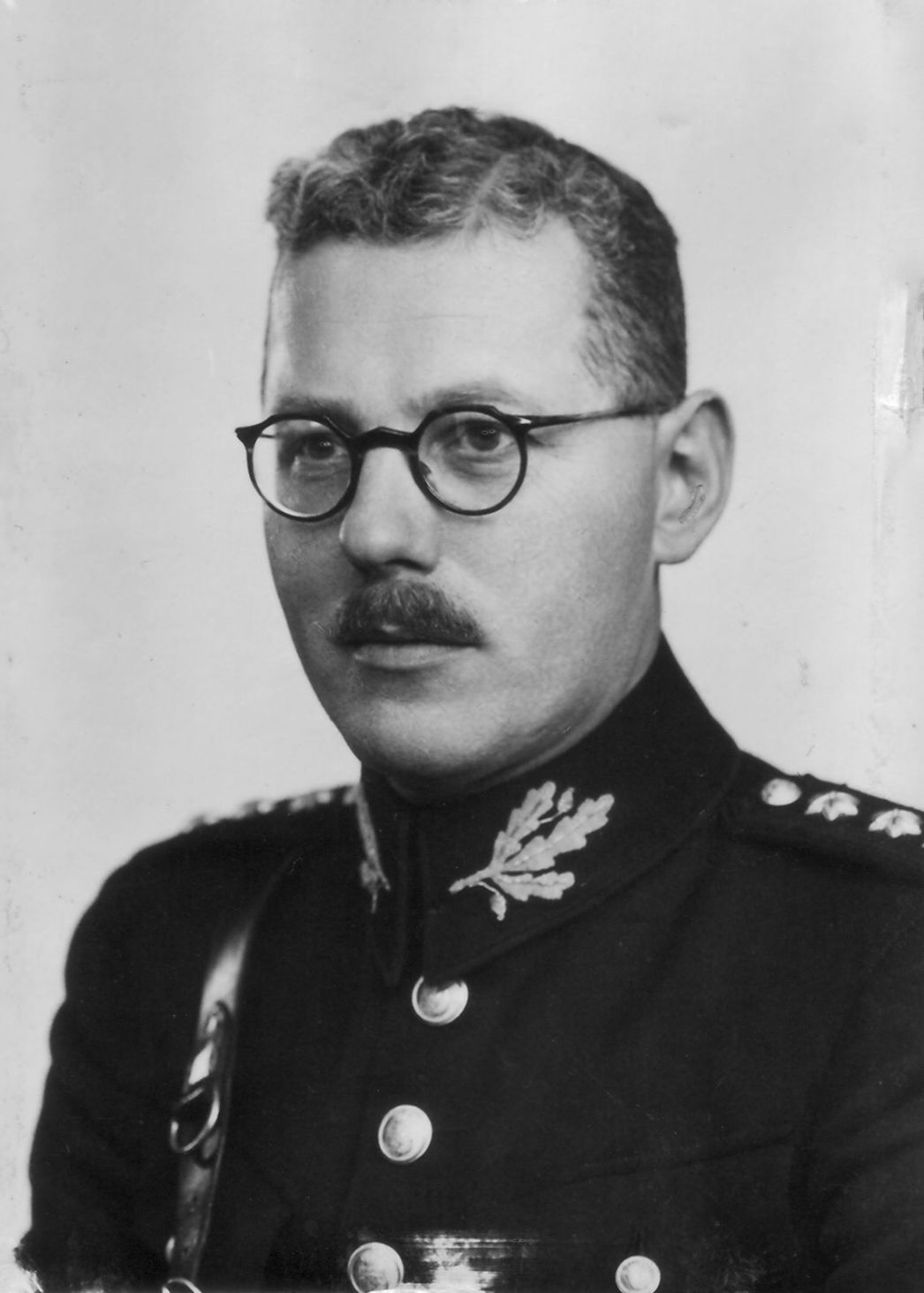Transcript
Svend-Aage Schaldemose-Nielsen Dearest Ghi and Troels! Thank you for the parcels, which I have received. I’m very happy to have the boots and trousers. Please send some underwear, handkerchiefs and galoshes, as well as razor blades. You can send parcels through the Red Cross. I am well, suffering only from an intense cold. [...] I hope both of you are well. You have to write your letters in German. I long for you terribly but hope to see you again soon in Denmark. [...]
Otherwise I have nothing to tell you, but I send my warmest greetings to you both and kisses for you.
Your dear S. Aage
Narrator Svend Aage Schaldemose-Nielsen wrote this letter to his wife and son ten days after he arrived in Buchenwald. Despite the forced cheerful and positive tone, we can surmise the conditions at the camp.
After graduating with a degree in law, 27-year-old Schaldemose-Nielsen joined the police force. In 1941, he became chief constable in the city of Fredericia. Two years later, he was transferred to Odense, one of Denmark’s largest cities. At this point, Denmark was already occupied by the Germans, although at first this was not very noticeable in everyday life: The Danish government continued to function. When acts of sabotage and demonstrations became more frequent, the Nazis changed their strategy. They disarmed the Danish army, put a ban on public meetings and the government stepped down. The police were disbanded because they refused to take more drastic action against insurgents. Many police officers were arrested and taken to German concentration camps. More than 1900 arrived in Buchenwald early in October 1944. They were put in the Little Camp, Block 57. It took another two and a half months before Heinrich Himmler decreed that they were to be treated as prisoners of war. This meant transferring the officers to prisoner-of-war camps, where the conditions were slightly better. At that point, 60 of them had already died at the Buchenwald concentration camp.
Svend Aage Schaldemose-Nielsen was among those for whom Himmler’s “decree” had come too late. He died in Buchenwald on the 26th of November 1944 from uraemia, resulting from an inflammation of the kidneys. Three weeks earlier, he had written his final letter to his family:
Svend-Aage Schaldemose-Nielsen Dear Ghi and Troels, once again, I’m writing you a letter to let you know that things are going well for me and that I’m healthy. Since I have yet to receive a letter from you, I may hope that you are well. A letter from you would make me very happy. We are hoping now – perhaps with some reason – to be able to come home in the near future. Best wishes and kisses,
Your devoted S. Aage


